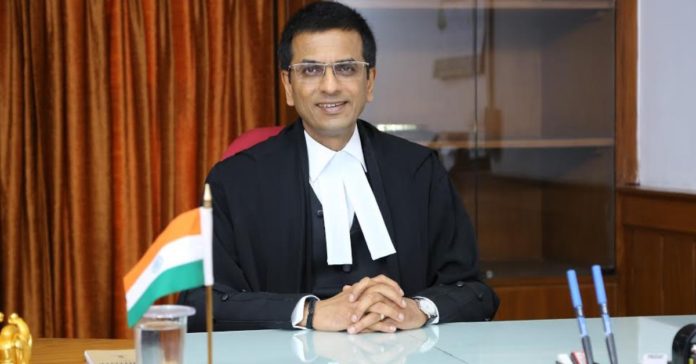
Today, On the occasion of Constitution Day, Justice DY Chandrachud has observed that the Supreme Court has mandate to interfere in cases involving deprivation of Constitutional rights.
While delivering a lecture at a session of the Jindal Global Virtual Conference, Justice ChandraChud has noted that, “Endowing courts with the expectation that they are the sole repositories of social change is unrealistic. It will breed cynicism of unrealised hopes.”
However, there are cases where the courts can play a vital role in fostering the growth of Constitutional and democratic values, he said. Pertinently, he added,
“In cases and controversies brought to the court evidencing a deprivation of Constitutional and legal rights, the Supreme Court of India has not just the power, but the mandate to interfere.”
Remarking the Present Pandemic situation, Justice Chandrachud had raised several pertinent questions, including on the role of the courts in the realisation of liberal, democratic, and Constitutional values.
While addressing a session, he noted that social action litigation has served as a powerful tool to correct deficiencies in government delivery and to protect those at the receiving end of repression, administrative inefficiency, and absence of legal protection, he observed.
Further, he added that public-spirited citizens need to bring forward petitions that are well focused and narrowly tailored, based on strong evidence, broad stakeholder consultation, and genuinely representing the voices of those on whose behalf it is brought forward.
He went on to observe that in the BK Pavitra case, the Supreme Court was called on to tackle negative stereotypes regarding the merit and efficiency of Scheduled Castes and Scheduled Tribes which were couched in the seemingly neutral language of law.
Justice Chandrachud opined that while upholding the validity of the promotions, the Court recognised that “assumptions about merit cannot be divorced from social and economic privileges that have accrued to the forward castes and the centuries of deprivation and discrimination suffered by the members of the scheduled caste and scheduled tribe communities.”
Pertinently, he emphasised that the State must also remain committed to achieving equality and protecting minorities in order to prevent violent upheavals and ensure the continuance of Constitutional methods for expressing discontent. He explained:
“As Justice Subba Rao reminded us, a Constitution is only permanent, and not eternal. There is nothing to choose between destruction by amendment or by revolution. The former is brought by totalitarian rule, which cannot brook constitutional checks and the other by the discontentment brought by misrule. If either happens, the Constitution will be a scrap of paper.”
Describing the Constitution as a mobilisational tool for social movements and a powerful moral register that can inspire citizens’ movements, Justice Chandrachud went on observe:
“The Constitution does not belong solely to lawyers and judges. The Constitution’s aspirations and transformative vision transcend legalist formulae and esoteric legal debate.“
On this count, a crucial role is also played by the guiding light of the Preamble, which carries with an important task of imprinting into our Constitutional consciousness the values of justice, liberty, equality, and fraternity.
“As long as we view the Preamble as our guiding light and strive to make its promise come alive, our country will remain on the path of a Constitutional, liberal democracy”, Justice Chandrachud said.
He went on to refer to how the Constitution’s vocabulary was used by various marginalised groups – including undertrial prisoners, members of the Scheduled Caste and Scheduled Tribe community, women, members of the LGBTQ community, slum dwellers, pavement dwellers etc. – to seek empowerment and advancement.
In the early years, Justice Chandrachud pointed out, more than lawyers; social entrepreneurs approached the Court in public interest litigation. Judges and lawyers have to play a facilitative role.
Upon concluding his speech, Justice Chandrachud observed,
“The framers of our Constitution laid down the cornerstone to create a legal and institutional infrastructure to promote a culture of Constitutionalism and liberal democracy. It now falls on each of us to play our part to ensure that we keep it that way.“





